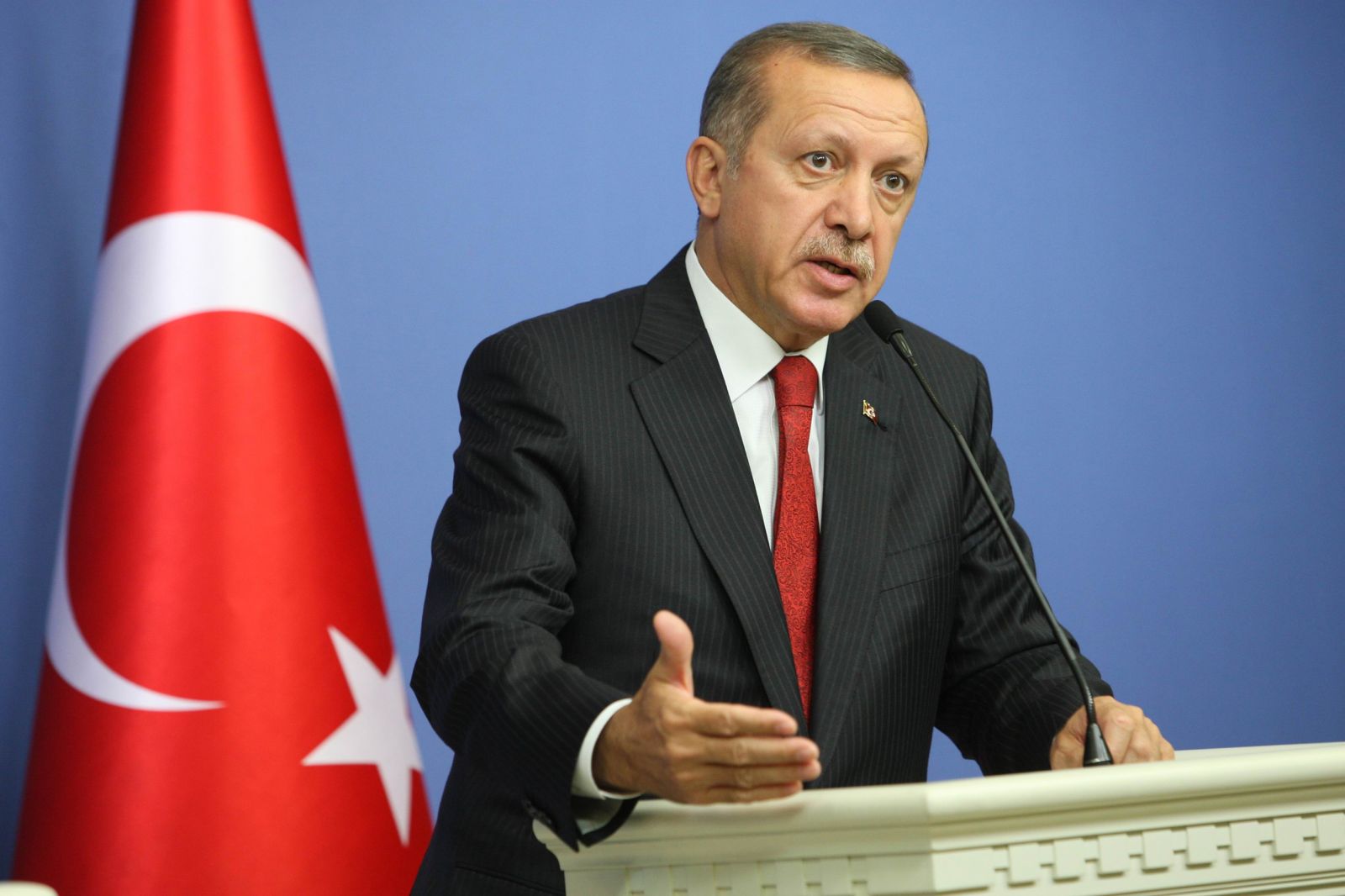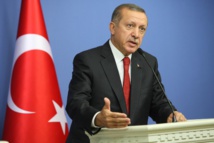"This is certainly not a retreat," he said in televised comments in Ankara.
"This is a temporary relocation in order to not endanger the security of the lives of our soldiers on duty," he added.
The opposition has lambasted the operation to remove the remains of Suleyman Shah -- a 13th century figure revered by Turks -- as a retreat that meekly handed over the area to IS.
"You surrendered, but you're celebrating it as a victory. You have left a black mark on this nation," Arif Hamzacebi of the opposition CHP told parliament.
There had been considerable concern in previous months about the safety of the Turkish soldiers guarding the tomb, some 37 kilometres (23 miles) inside Syrian territory.
The Turkish military's incursion into Syria involved transporting the tomb to Eshme, located just 200 metres (yards) from the Turkish border.
Before their withdrawal, the troops blew up the building complex that housed the tomb so it could not be used or desecrated by jihadists.
"It was a night of honour for us. We saved it from the circle of fire," said Prime Minister Ahmet Davutoglu of the tomb's transfer.
Defence Minister Ismet Yilmaz argued the tomb was even better situated now than before. "We now have a new tomb that is within walking distance" of Turkey, he said.
Suleyman Shah is important to Turks as the grandfather of Osman I, who is said to have founded the Ottoman dynasty in 1299.
The former site of the tomb on the Euphrates River was considered sovereign Turkish territory under a 1920s treaty. But the sepulchre has been moved before, most recently in the 1970s, when the Syrian regime flooded its former location.
Meanwhile, presidential spokesman Ibrahim Kalin vehemently denied suggestions that Turkey had carried out the operation in close coordination with the Kurdish fighters battling jihadists.
Ankara has poor relations with the anti-Damascus Syrian Kurdish party, Democratic Union Party (PYD), which it regards as an affiliate of the separatist Kurdistan Workers' Party (PKK), the group behind a 30-year insurgency in Turkey.
"There was no cooperation or coordination between Turkey and the organisations on the ground," said Kalin, denouncing the PYD as a "terrorist" group.
----------------------------------------------------------------------------------------------------------------------------
"This is a temporary relocation in order to not endanger the security of the lives of our soldiers on duty," he added.
The opposition has lambasted the operation to remove the remains of Suleyman Shah -- a 13th century figure revered by Turks -- as a retreat that meekly handed over the area to IS.
"You surrendered, but you're celebrating it as a victory. You have left a black mark on this nation," Arif Hamzacebi of the opposition CHP told parliament.
There had been considerable concern in previous months about the safety of the Turkish soldiers guarding the tomb, some 37 kilometres (23 miles) inside Syrian territory.
The Turkish military's incursion into Syria involved transporting the tomb to Eshme, located just 200 metres (yards) from the Turkish border.
Before their withdrawal, the troops blew up the building complex that housed the tomb so it could not be used or desecrated by jihadists.
"It was a night of honour for us. We saved it from the circle of fire," said Prime Minister Ahmet Davutoglu of the tomb's transfer.
Defence Minister Ismet Yilmaz argued the tomb was even better situated now than before. "We now have a new tomb that is within walking distance" of Turkey, he said.
Suleyman Shah is important to Turks as the grandfather of Osman I, who is said to have founded the Ottoman dynasty in 1299.
The former site of the tomb on the Euphrates River was considered sovereign Turkish territory under a 1920s treaty. But the sepulchre has been moved before, most recently in the 1970s, when the Syrian regime flooded its former location.
Meanwhile, presidential spokesman Ibrahim Kalin vehemently denied suggestions that Turkey had carried out the operation in close coordination with the Kurdish fighters battling jihadists.
Ankara has poor relations with the anti-Damascus Syrian Kurdish party, Democratic Union Party (PYD), which it regards as an affiliate of the separatist Kurdistan Workers' Party (PKK), the group behind a 30-year insurgency in Turkey.
"There was no cooperation or coordination between Turkey and the organisations on the ground," said Kalin, denouncing the PYD as a "terrorist" group.
----------------------------------------------------------------------------------------------------------------------------









 Home
Home Politics
Politics











